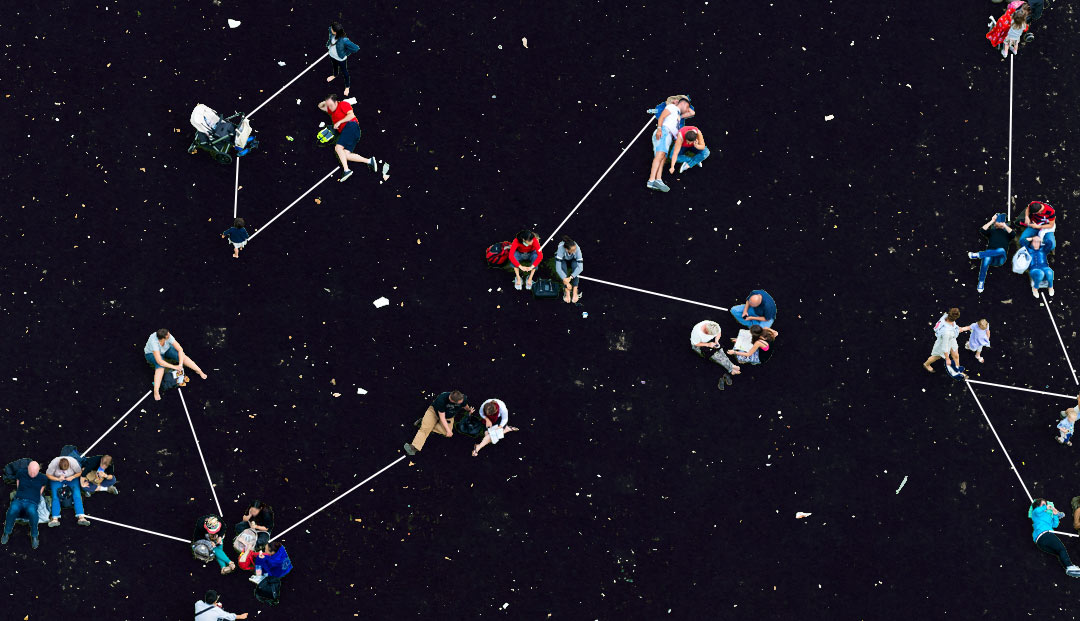The ability to confront global crises, from pandemics to climate change, relies on how people interact with and share information.
Social media and other forms of communication technology restructure these interactions in ways that have consequences. Unfortunately, it is unknown whether these changes will bring about a healthy, sustainable, and equitable world.
As a result, researchers now argue that the study of collective behavior must rise to a “crisis discipline,” just like medicine, conservation, and climate science have done, according to a paper published June 14 in the Proceedings of the National Academy of Sciences.
“We have built and adopted technology that alters behavior at global scales without a theory of what will happen or a coherent strategy for reducing harm,” said Joseph B. Bak-Coleman, the lead author and a postdoctoral researcher at the University of Washington’s Center for an Informed Public.
Bak-Coleman worked on the study with several researchers at Princeton University including Miguel A. Centeno, Andrew S. Gersick, Daniel I. Rubenstein, and Elke U. Weber.

Historically, collective behavior has best been understood as when animals or people exhibit coordinated action without an obvious leader. This includes how fish school to evade predators or when a crowd spontaneously breaks into applause or becomes silent.
Social media and other technological developments have radically reshaped this, especially when it comes to the sharing of global information. Social media platforms are designed to maximize engagement and profitability, not to promote sustainability or share accurate information. This “infodemic,” a term coined by the World Health Organization to describe the influx of misinformation and disinformation, poses a dire threat to health, peace, global climate, and more.
No one, not even the platform creators themselves, have a thorough understanding of how their design decisions impact human collective behavior, the authors argue.
“We urgently need to understand this and move forward with focus on developing social systems that promote well-being instead of creating shareholder value by commandeering our collective attention,” said co-author Carl T. Bergstrom, a University of Washington (UW) professor of biology and faculty member at the Center for an Informed Public.
Collective behavior and other complex systems are fragile. “Complex systems tend to exhibit finite resilience when perturbed, followed by catastrophic, sudden, and often irreversible changes,” the authors write.
While there are studies and disciplines that focus on complex systems in the natural world. “We have a far poorer understanding of the functional consequences of recent large-scale changes to human collective behavior and decision-making,” the authors write.
Averting catastrophe in the medium term (e.g., coronavirus) and long term (e.g., climate change, food security) will require a rapid and effective collective behavioral response.
“We have seen individual studies about how climate change disinformation gets over-represented even in the mainstream media, and studies that show that in digital media that problem only gets worse,” said co-author Jennifer Jacquet, an associate professor of environmental studies at New York University.
Tech companies are also fumbling their way through the ongoing coronavirus pandemic, unable to stem the “infodemic” of misinformation that impedes public acceptance of pandemic control measures such as wearing masks and widespread testing for the virus.
The situation parallels challenges faced in conservation biology and climate science, where insufficiently regulated industries optimize profits while undermining the stability of Earth systems. “If we have a decade or so to act on climate change, we have far less time to sort out our social systems,” Bak-Coleman said.
“But understanding the root causes of a problem also points the way to interventions that can rectify the situation,” added co-author Weber, professor of psychology and public affairs at Princeton.
Thinking about collective action has evolved over the past decade, the authors write, looking at it not as a phenomenon in its own right, but as an emergent property of the interactions between individuals.
Funding came from the University of Washington eScience Institute, the Knight Foundation, the University of Washington Center for an Informed Public, the Deutsche Forschungsgemeinschaft, the National Science Foundation, the Max Planck Society, the Baird Society, the Emmy Noether Program, the Santa Fe Institute, and the U.S. Navy’s Office of Naval Research.


